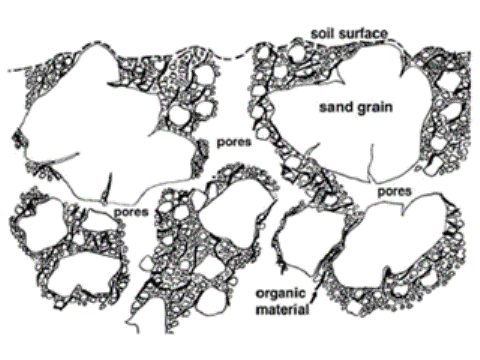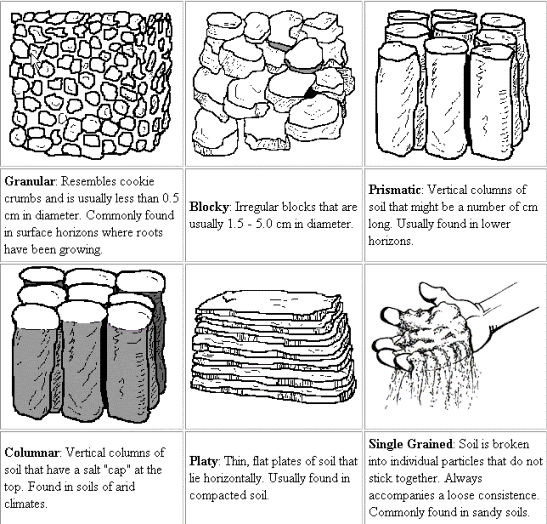
Posted on 03/02/2012 8:10:56 AM PST by JustaDumbBlonde

.
Good morning fellow gardeners! Here in NE Louisiana the weatherman claims we will reach 90 degrees today. He is really starting to get on my nerves ... doesn't he know that this is the first week of March, for pete's sake? He could shade the truth and tell us it's going to be 68, it's not like he's given bad information before, he does it at least 3 days a week. But, I digress.
First off this week, I want to share a link that fanfan, one of our gardening FRiends in Canada, sent to me earlier in the week. Three seed-sowing techniques is sure to bring valuable information to many of our gardening notebooks. Thanks, fanfan!
I'd also like to share a link to an article that shows how to build a hoop house/greenhouse that is simple, yet extremely well done and strong. In An Early Start the author provides easy to understand instructions, along with photos, for constructing a year-round environment for gardening at home. At least one of these will be built at my house this year ... I've got most of the components that I can scrap up from my piles of useful junk.
I've been threatening y'all with information on soil structure, and this week I want to begin with some basic information that we'll build on over the weeks. I hope to get everyone thinking about making the most of their yards and gardens by understanding the things we have to work with. Many of you already practice soil management and understand the importance of structure. I hope that you will join the discussion and offer all of us your some of your knowledge and expertise.
Simply put, soil structure is a term that describes the arrangement of the solid parts of the soil and of the space located between them. Basic structure depends on the soil type you are working with. (see previous thread on soil types.)

Soil structure is broken down into basic types, and is best determined by taking a sample of soil that has not been disturbed and looking closely at its shape. The shape of the soil will fall into one of the following categories: granular, crumb, blocky, platy, prismatic, columnar, single-grained, or massive. Note that massive soil is not pictured in the following diagram, but is basically unpermeable soil that is a solid block with no spaces.

Each individual unit of soil in the overall structure is called a ped. Only about 50% of structure is solid material. The remainder is spaces of air, organic matter, water and minerals. Other riches in the soil are worms, mites, nematodes, deep growing plant roots, bacteria and fungi. All of these things together are indications of soil quality, and developing a management strategy to enhance that quality is a sure way to hit pay dirt.
Why is information on structure important to you and your garden? Structure determines how well your plants will grow. Good structure reduces erosion, improves root penetration and access to soil moisture and nutrients. Even seedlings will emerge easier in well managed soil due to less surface crust. Water infiltrates good structure better and is more readily retained. Some soil health consultants claim that garden productivity can improve 2 to 3 fold with improved structure.
The best news is that anyone can improve the structure of their soil. In coming weeks I will be setting out ways to do just that. I decided to do this in several parts for a couple of reasons: structure is not something that you've going to attack and change in the span of a week; and if I presented all of it in one thread, eyes would glaze over and we would all fall asleep and miss planting season. 

The Weekly Gardening Thread is a weekly gathering of folks that love soil, seeds and plants of all kinds. From complete newbies that are looking to start that first potted plant, to gardeners with some acreage, to Master Gardener level and beyond, we would love to hear from you.
This thread is non-political, although you will find that most here are conservative folks. No matter what, you won’t be flamed and the only dumb question is the one that isn’t asked.
It is impossible to hijack the Weekly Gardening Thread ... there is no telling where it will go and that is part of the fun and interest. Jump in and join us!
Yes, we all pretty much get into our regional ruts. I struggled for years at my house in the Houston area trying to install California landscaping into a Texas yard! It isn’t just water, temperature, and sunshine. There are so many other variables. Hot winds were my bane. They dried out my plants.
Hi!
The most classic look would be white and green. Depending on the look you want, verbena, petunia, nastursium, nicotana, candytuft, or any combination of them.
Or you could do some thing with yellow. I think red might get lost.
Storms hopped over my little homestead and hit Henryville , IN and tried to wipe it off the map.
Wind ripped one of my raised beds out of the ground and drug it across the yard.
I was hoping to plant onions today. Instead I hunkered down and sheltered from severe weather.
You are correct that the bad smelling ones should not be used. Bad smell is a sure sign that anaerobic bacteria is present, and you do not want that in the garden.
Not sure the area of your garden, but you may not want to use all of the leaves you have. Several garbage cans sounds like a lot. Maybe you could compost the ones you don't use immediately.
I’m not really sure about putting the fert on before you sow the seed. When we plant pasture, the grass is up and growing before we fertilize. Best way to be sure is checking the instructions on the bag of grass seed, or looking up the grass variety on the web and following the recommendations for fertilizing. It might very well give you a formulation recommendation as well, such as 13-13-13.
Our wheat fields are so far ahead of where they ought to be that we are in serious trouble if we get a freeze. Strange year.
We had a late 28 degrees this morning and I had a water leak in the garden because I had already turned the water back on.
Fortunately, Conroe is almost the same exact climate as Mobile and we see the same vegataion as we were accustomed to. Our big change came from having full hot sun to our current full shade. We now have only three sunny spots, each about the size of a small car, out of a 2/3 acre lot.
Happy to find this thread this morning. Yesterday was a rough, stormy day here in Middle Tennessee. Thanks to God, we had no major damage...nor did other family members. I’m looking forward to learning more about soil in the days to come.
AND...I really like that you have all the links to previous Gardening threads here. That makes it much easier to go back and re-read something that made an impression... or to find a link that was given.
;-)
“The trick to successful composting is sunshine, moisture and turning pile often.”
Yep...and it really helps to have a sister who invites you over several times during the year to take away her well composted horse manure...so that you can add it to your pile.
;-))))
I am very interested in your hulless oats. How large a patch do you plant. etc.? Any and all information would be welcome. ;-)
“I want something that grows lush and trails.”
Dichondra maybe....along with something else?
Ahhhhh, yes! Those are the beautiful compost bins that inspired me to start composting in the first place. How often do you turn yours?
Thanks for the info on edible flowers. I have two desert tortoises, so flowers are eaten in my house everyday. Pansies are particularly yummy and absolutely beautiful sitting on top of a salad. Dandelions are another favorite.
Thanks for the photos! Very healthy and beautiful tomato plants.
You’ve got a great plan going and I wish you bounty and success!
I was thinking of going yellow. I know I want some of that lime green color — whether it be some form of petunia, or sweet potato vine. Green and white is a thought too. I think red is hard. Getting something red that is a reliable bloomer all summer and lush is hard. Geraniums are the first thing that comes to mind, but they are so common.
I’ve always gone to hot pink and shades of purple. I suppose I could still do that and just ignore the door. It would still look good. 6 inches of white stuff on the ground this AM, so I have a little while to decide. LOL.

PTL that you are OK, and I hope your neighbors are too. Loss of a raised bed is nothing to worry about.
Disclaimer: Opinions posted on Free Republic are those of the individual posters and do not necessarily represent the opinion of Free Republic or its management. All materials posted herein are protected by copyright law and the exemption for fair use of copyrighted works.